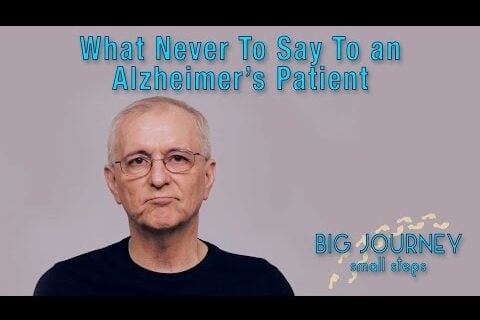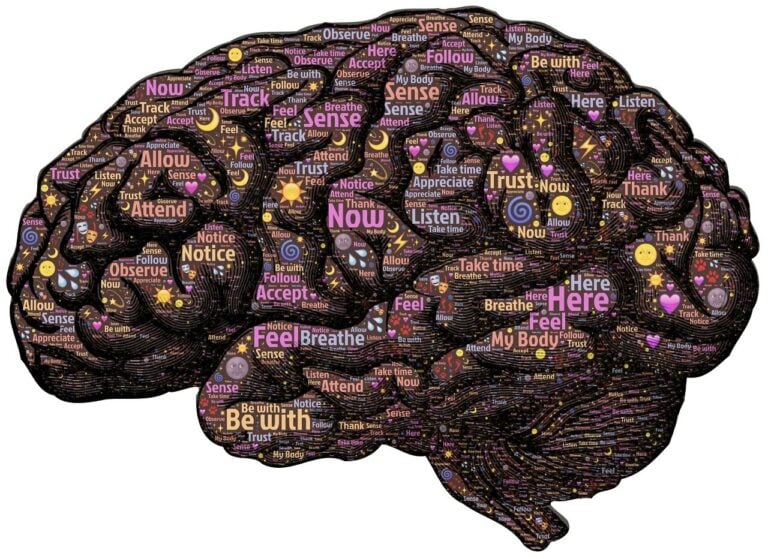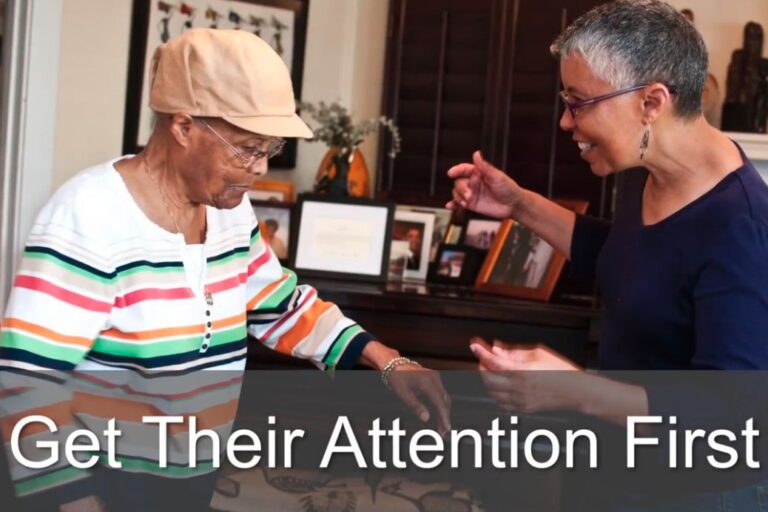
Alzheimer’s: What Not to Say
[VIDEO] TIPS FOR FAMILY, FRIENDS & CAREGIVERS. The title says it all. Whether caregiving for someone with Alzheimer’s or just visiting, be wise & avoid these phrases.

[VIDEO] TIPS FOR FAMILY, FRIENDS & CAREGIVERS. The title says it all. Whether caregiving for someone with Alzheimer’s or just visiting, be wise & avoid these phrases.

“WHAT TIME IS IT?” Repetitive questions from dementia trigger frustration and anxiety in caregiver and patient. At a loss as to how to deal with it? Check out these UCLA Health tips.

Aphasia affects a person’s ability to communicate. It affects language functions, such as speaking, understanding what others say, and naming common objects. Learn its causes, types and a few tips.

COMMUNICATIONS VIDEO + TRANSCRIPT: In Alzheimer’s, talking to a loved one can be very frustrating. Here are 3 tips that can help.

4 tips to improve communication with a loved one who has a dementia or Alzheimer’s diagnosis. These tips foster understanding and create a calm, supportive environment. Watch and learn how to navigate challenging moments with care and compassion.

Teepa Snow shows the audience how to approach and communicate with someone who has dementia.

TEEPA CARE VIDEO: In dementia, why focus on what people lose? Focus on what they have. Teepa shows how to make the most from their abilities.

Teepa shows how to make the most from the ability to communicate with dementia. Watch now.

TEEPA SNOW VIDEO: People with dementia can say, do and act in the most frustrating ways. Learn why it happens the way it does, how to take it, and what to do about it.

COMMUNICATING WITH DEMENTIA – VIDEO: Four teenagers and young adults tell us about their experiences of having a relative with dementia, as well as sharing their insights on keeping connected to that person.

Swiss researchers find that people with certain personality traits are protected against Alzheimer’s disease, including those who are less agreeable, had natural curiosity, and were nonconformists. Find out why.

Learn about ‘personalized music for dementia’ and its powerful effect on Alzheimer’s. See the Director of the hit film, ‘Alive Inside’, on the dementia-impact of music.

The antidepressant drug citalopram, also sold under the brand names Celexa and Cipramil, significantly relieves agitation in Alzheimer’s. Learn about the benefits and side-effects.

Swiss researchers find that people with certain personality traits are protected against Alzheimer’s disease, including those who are less agreeable, had natural curiosity, and were nonconformists. Find out why.

Learn about ‘personalized music for dementia’ and its powerful effect on Alzheimer’s. See the Director of the hit film, ‘Alive Inside’, on the dementia-impact of music.

The brush strokes are precise, the colors vibrant. See a Colorado art program help patients rise above dementia, while the paintings raise money for The Alzheimer’s Association.

The protein BDNF builds synapses in the human brain, nurturing brain cells and fighting off dementia. While there is no artificial way of boosting it, social and cognitive activity can.
No spam, only news and updates.


